From November 25th to the 27th, HEKS/EPER hosted a Church Cooperation Consultation in Budapest in cooperation with the Reformed Church in Hungary (RCH). The consultation brought together various church partners from the Czech Republic, Hungary, Italy, Lebanon, Romania, Serbia, Slovakia, Syria, Switzerland, and Transcarpathia, Ukraine. The consultation, entitled “One Mission Towards Many,” brought together church leaders to discuss the variety and nuance of church missions across diverse contexts.
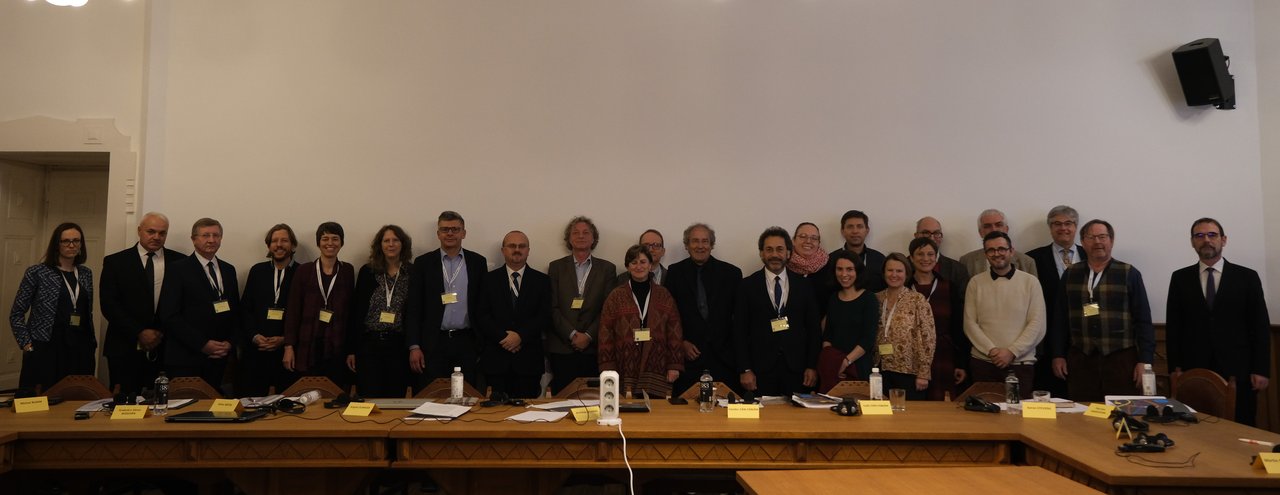
Photo: Ecumenical Office, RCH
The consultation’s title was “One Mission Towards Many: Challenges for Our Christian Mission in Light of the Plurality of Our Identities and Local Realities.” The consultation aimed to develop a dialogue between the various participants on how our different contexts, experiences, and identities inform the manifestation of our Christian mission. Participants were encouraged to consider their identities' unique and multifaceted constitution and how some traits and values are mutual between Christians transcending our contextual differences.
Church Cooperation (CC) has historically been a crucial underpinning of HEKS/EPER's international work and remains important. HEKS/EPER, mandated by the Swiss Protestant Churches, supports, advises, promotes, and accompanies Reformed Churches in Central and Eastern Europe, Italy, and the Middle East in their diaconal and social ministry and in building lively church communities. The Church Cooperation endeavours to strengthen the network with all the Church partners and the Swiss Churches around common concerns within the framework of HEKS/EPER and facilitate a mutually constructive dialogue among partners.
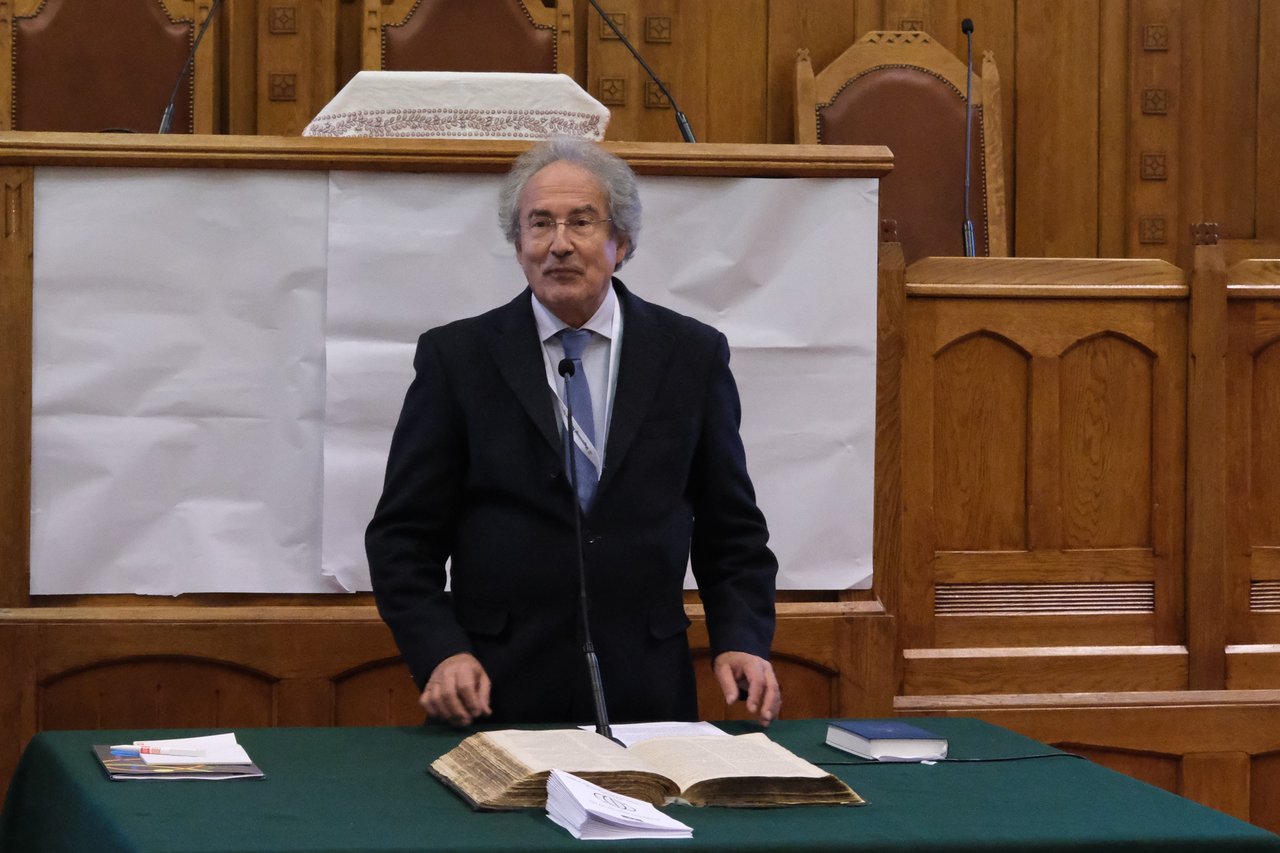
Photo: Ecumenical Office, RCH
The consultation began with a greeting word from Dr. Walter Schmid, President of the HEKS Board of Trustees, who asked the question: “What do we want to talk about? The world has become a vulnerable habitat for mankind. Some of you live and work in war zones yourself. What is our mission? Our joint reflection may give us insights to recognise our common mission and give us the courage to take concrete actions. Together, we want to renew our commitment to the vulnerable people in our societies, considering the plurality of our identities and the different local contexts in which we work. As Christians, we want to engage in dialogue across national borders and look for ways to fulfil our mission effectively and together in the spirit of love and hope that underpins our faith. Love and Hope is what we can contribute as Christians to a better world.”
Bishop József Steinbach, Ministerial President of the Reformed Church in Hungary, after citing the daily Bible text from Rome 16:25-27, he continued as follows: “It is with this spiritual message in mind that I welcome this conference, which marks the beginning of a new chapter in the blessed cooperation between HEKS and the Swiss Protestant Church and its partners, including the Reformed Church in Hungary and the wider Hungarian reformed community.” Commenting on the topic of this HEKS Consultation, the Hungarian protestant leader added: “God's power strengthens and sustains us, even in the most difficult situations. God's power is always manifested in His life-preserving and life-fulfilling love, since He creates, He recreates, He saves. Authentic mission only takes place where life is preserved, sustained, and lifted up by the love of humanity that comes from God's love. What is needed is a Christian culture of mercy in an interest-driven and harsh world. It is a defining identity of faith in Jesus Christ, which brings together different local particularities; it does not annihilate them but connects them in an overarching unity. Neither local particular characteristic nor its defence shall distort us and make us merciless. At the same time, Christian mercy does not eradicate particularities, but in extraordinary situations, it transcends them and, at the same time, strengthens and makes them Christ-like.”
After a welcoming word from Michel Rudin from the Board of the Protestant Church in Switzerland, inviting the Consultation to learn from each other’s experience, the participants were invited as an introduction to the theme of the consultation, to share a little background on the most prominent characteristics of their churches and organisations. Of course, the reformed identity is mentioned as a lighthouse, but many are also in a changing process, adapting to new social realities. Most of the participant Churches are also in a minority status, and this shapes their identity in a significant way.
The following activity encouraged individuals to brainstorm the obstacles their church or organisation face in fulfilling their respective missions. In an exceptionally open and honest way, some spoke about “an unfunctional tradition” loss of memberships (for many because of emigration, others due to loss of sense of belonging). Human resources in the local reality was mentioned. Cultural war, difficult relations with secularism and religious analphabetism seem fairly common to many historical protestant churches. The activities underscored the diversity between churches while drawing together similarities between the different contexts.
Additionally, the consultation included nine presentations from partners who work with HEKS in their various social missions. The diversity of the projects underscored the theme of the conference: “One Mission Towards Many”, which illustrated the diversity of the social commitment of each HEKS partner Church.
The first project presentation of the consultation highlighted the work of the Centro Diaconale “La Noce” in Palermo, Italy, presented by Alessandra Trotta, Moderator of the Waldensian Church. The Centro Diaconale “La Noce” is a social mission of the Waldensian Church, that implements activities and interventions in the educational, social, cultural and health sectors. The center extends its services primarily to disadvantaged children to overcome social, cultural and psychophysical conditioning. Additionally, the project also supports unaccompanied foreign minors through reception centres and newly-adults (having reached legal adulthood) who have left the reception facilities and are in need of assistance. The evening closed with a prayer from Bishop Béla Kató of the Transylvanian Reformed Church District in Romania.
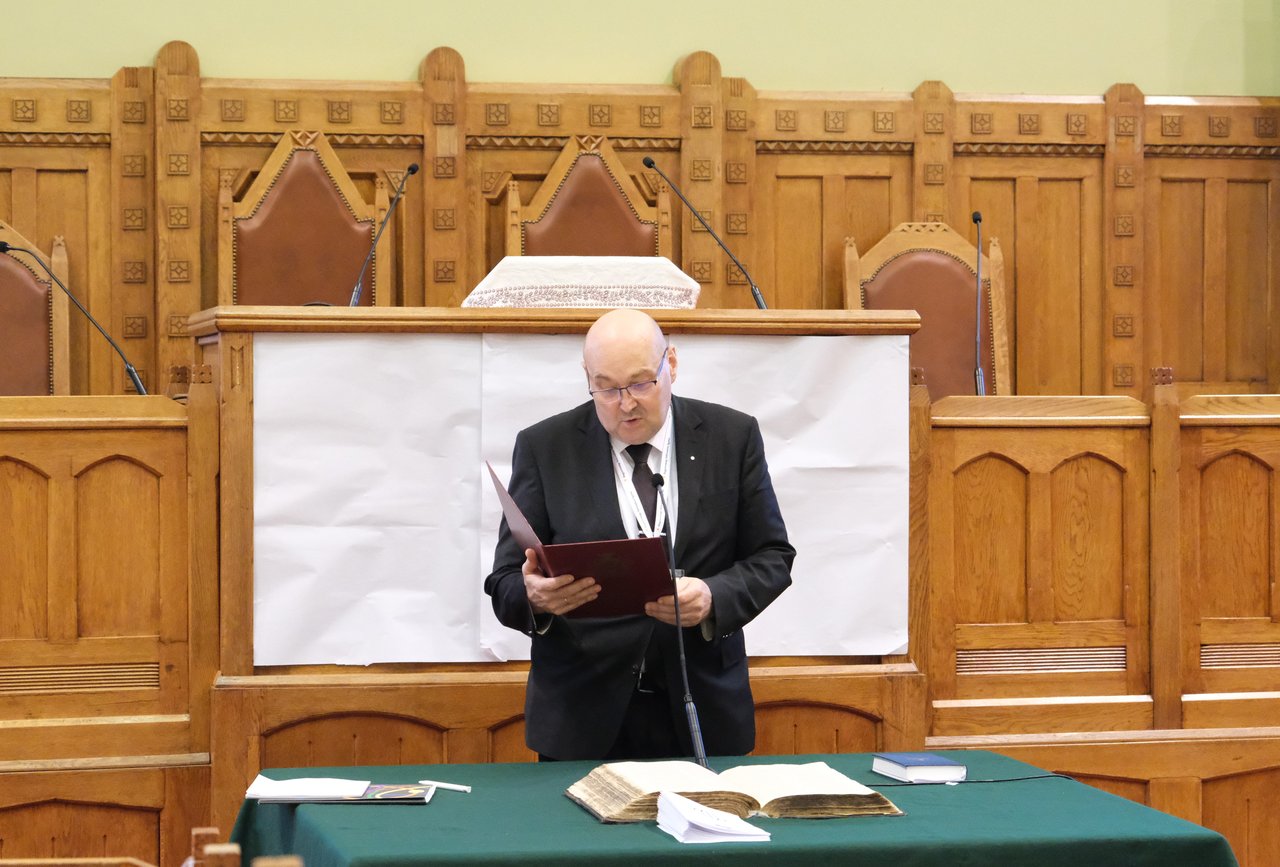
Photo: Ecumenical Office, RCH
The second consultation day began with a prayer from the Evangelical Church of the Czech Brethren (ECCB). The first session of the day included a theological input on the thematic question “How does the understanding of God’s mission shape our identity?” from Dr Christian Weber from Mission 21, a protestant mission service focused on sustainable development and humanitarian aid. Participants were encouraged to consider two prominent debates concerning church mission. First, what is the balance between the proclamation of the gospel and diaconia and social action? Second, should the emphasis in the mission be on individual cases or system change? Weber highlighted the complexities of the consultation theme and the diversity of experiences and contexts between the participants. In the end, Weber said, “How can we take part in God's mission? By working on it together.”
The theological input was followed by responses from participants. Maliq Meda, a young pastor in Puglia, in a congregation of the Waldensian Church in Italy, spoke on the dynamism of Christian identity and vocation. Both identity and our Christian vocation are intertwined with our relation to others, “not doing, but being,” and thus, both concepts are implicated with a sense of movement. Movement, growth, and transformation to deepen our understanding of God’s calling, Meda said, “inspire us to lead our faith publicly as a dynamic reality in every facet of life so that we may proclaim a credible testimony.”
Bishop Zán-Fábián of the Reformed Church in Transcarpathia offered the second input from participants. The bishop emphasised the omnipresence of God’s mission throughout the world, recalling the diversity of perspectives around the consultation table, “God’s mission is in every nook and cranny of this world.” Bishop Zán-Fábián said that God placed him where he is because this is where God wants to see him fulfil the mission. Part of his identity, the bishop said, is that he is called to act fully in his place; God has entrusted him to proclaim the Gospel here. “I am only a link in the chain of God’s mission,” the bishop said, “a link that has to hold on and hold out… my link of a life has the job to proclaim mercy and grace and to be a witness of those, to lead everyone to accept these.” The third input came from the Reformed Christian Church in Serbia, where Ecumenical Officer Rev. Maria Beszédes presented on behalf of Bishop László Harangozó. “God created man in his own image, the identity of the man is linked to this, the love and wisdom of god and realised in human being,” the input read. Despite our sins, God has not forsaken us. The arrival of Jesus Christ was the most important event: to reestablish the lost image and redeem mankind from sin. The Christian life is about becoming similar to Christ; sin should not shape our lives.
After a short discussion, the guest theologian left us with this sentence: “The topic is not the realisation of the mission, but the call.”
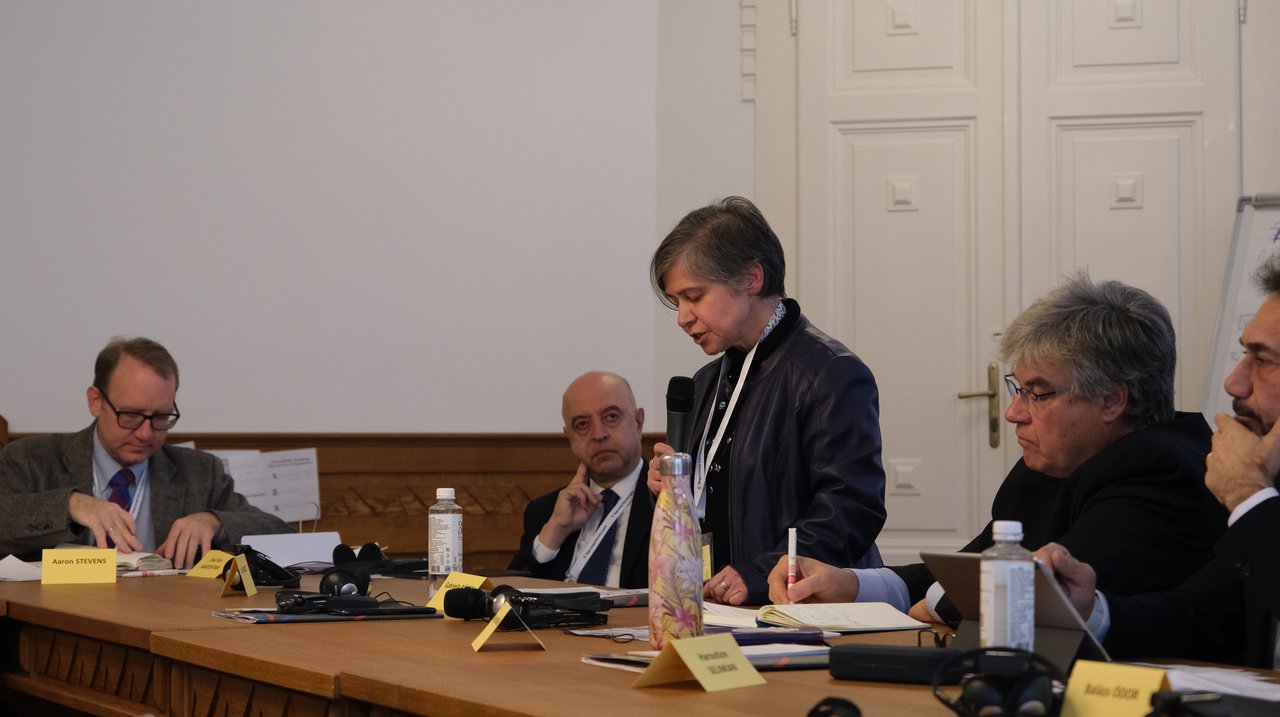
Photo: Ecumenical Office, RCH
A second theological addressed the thematic question, “How Do Our Identities Inform Our Participation in God’s Mission?” The input was given by Rev. Dr. Gabriella Rácsok, assistant professor of Systematic Theology and vice-rector of the Reformed Theological University of Sárospatak, Hungary. Rev. Dr. Rácsok discussed the various aspects of an individual’s identity through a sociological lens while also discussing theological approaches to Christian identity. Rev. Dr. Rácsok discussed how identity and experience can shape theological understandings and create a distinct Christian identity across contexts. “The problem,” Rev. Dr. Rácsok said “is not contextuality but exclusivity and absolutisation. The problem is not that our capacity for understanding is limited and partial – this is part of our creaturely nature – but when our selective hearing, faith, and behaviour are guided by self-interest and when we refuse to face criticism or to listen to other voices.”
Following the theological input, three participants presented short inputs on what implications discussion in society, inclusion activities or the minority status in an interreligious society have for our Christian understanding. Rev. Dr Martin Hirzel of the Protestant Church in Switzerland discussed the impact of the debate on assisted suicide in the Swiss society on the Church in Switzerland, highlighting the challenges Churches face when societal discourse may run contrary to the prevailing church precedent. The second input came from Rev. Dr. Harout Selimian of the Union of Armenian Evangelical Churches in the Near East. He discussed the challenges of being a religious minority and underscored the opportunities for growth and connection this situation brings. Sharing their traditions and stories is an occasion for broadening views on spirituality for everyone in society. Bishop Béla Kató from Transylvania added that, out of his 50 years of relations with HEKS, “fraternity is a way of managing differences.”
The latter part of the day included several project presentations from various partners who work with HEKS on social missions. The first presentation came from the Partium Reformed Church District in Romania on the Lámpáss Foundation, which helps individuals recovering from domestic violence, counselling and awareness-raising, and protecting potential victims of human trafficking. The second presentation came from Rev. Dr. Paul Haidostian, president of the Union of Armenian Evangelical Churches in the Near East, on their Afterschool at the Social Action Centre in Burj Hammoud, Beirut. The Social Action Centre creates a safe space for children and youth where they are supported with their school homework and performance. The goal here is to lower early dropout rates and increase educational accessibility for students.
The second set of project presentations included two refugee reception projects from the Czech Brethren (ECCB) and the Hungarian Reformed Church Aid, and a presentation on Home Care Services from the Transylvanian Reformed Church District. The ECCB refugee reception presentation highlighted the number of Ukrainian refugees that settled in the Czech Republic following the escalation of the war. The ECCB coordinated with parishes across the country to assist with accommodation, education, employment, psychosocial counselling, and more. The Home Care Services presentation highlighted the diaconal work of the Transylvanian Reformed Church District, particularly in providing necessary care to elderly and disabled individuals with low mobility. The Refugee Ministry of the HRCA presented its projects with HEKS involving refugee integration and inclusion, highlighting how church partnerships can adapt to the crisis it faces in the work of refugees and migration.
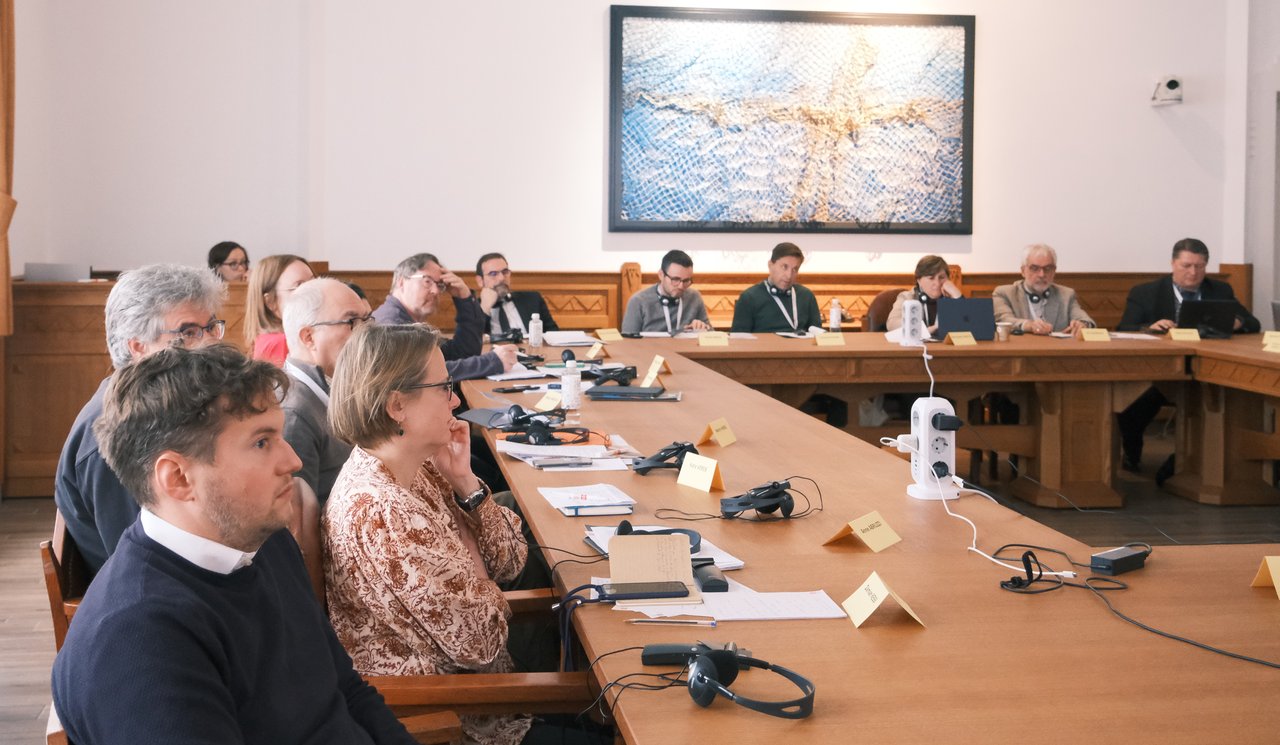
Photo: Ecumenical Office, RCH
On Wednesday morning, the final portion of the consultation was initiated with a morning prayer from the Union of Armenian Evangelical Churches in the Near East. The final project presentations included Serbia, Transcarpathia, and Syria. In Serbia, the project is aimed at the social inclusion of Roma and other vulnerable peoples. It focuses on discrimination and anti-Romanism, education, and housing support. From Transcarpathia, the presentation showcased the Nefelejcs (Forget-Me-Not) children’s rehabilitation centre. Nefelejcs marked its 10th anniversary this year. The centre provides day care for disabled children in the region, including education assistance, different forms of psychosocial therapy, and various study trips for the children. From Syria, Rev. Dr. Harout Selimian presented on the HEKS program for scholarships for vulnerable children. This project is aimed at providing access to education in an inclusive and supportive environment; it highlights education as a pathway to healing and community rebuilding.
The final session of the consultation encouraged participants to consider future themes and topics for Church Cooperation dialogue, which is a new way for HEKS to relate to the partner Churches. Going beyond project participation, HEKS will engage in thematic exchanges of skills and experiences from the project work and social debates in the near future. Participants discussed several topics, including churches’ work in peace, justice, and reconciliation, upholding human rights, encouraging inter and intra-church dialogue, linking professionalised diaconia with grassroots social missions, youth engagement and empowering young people within the church, and more. Partners expressed an optimistic outlook on the Church Cooperation endeavour, highlighting a crucial potential to strengthen mutual trust and encourage dialogue in a safe, open, respectful forum. Throughout the exploration of the consultation theme, participants shared and discussed the variety of experiences and contexts in which their church pursues its mission. Nevertheless, the consultation underscored the vital and distinguishing features of church cooperation transcending our differences: mutual trust, dynamic collaboration, dedicated commitment to various social ministries, and encouragement of continued dialogue.
The Swiss participants noted at the end that such partnerships are of great potential for their own Churches.
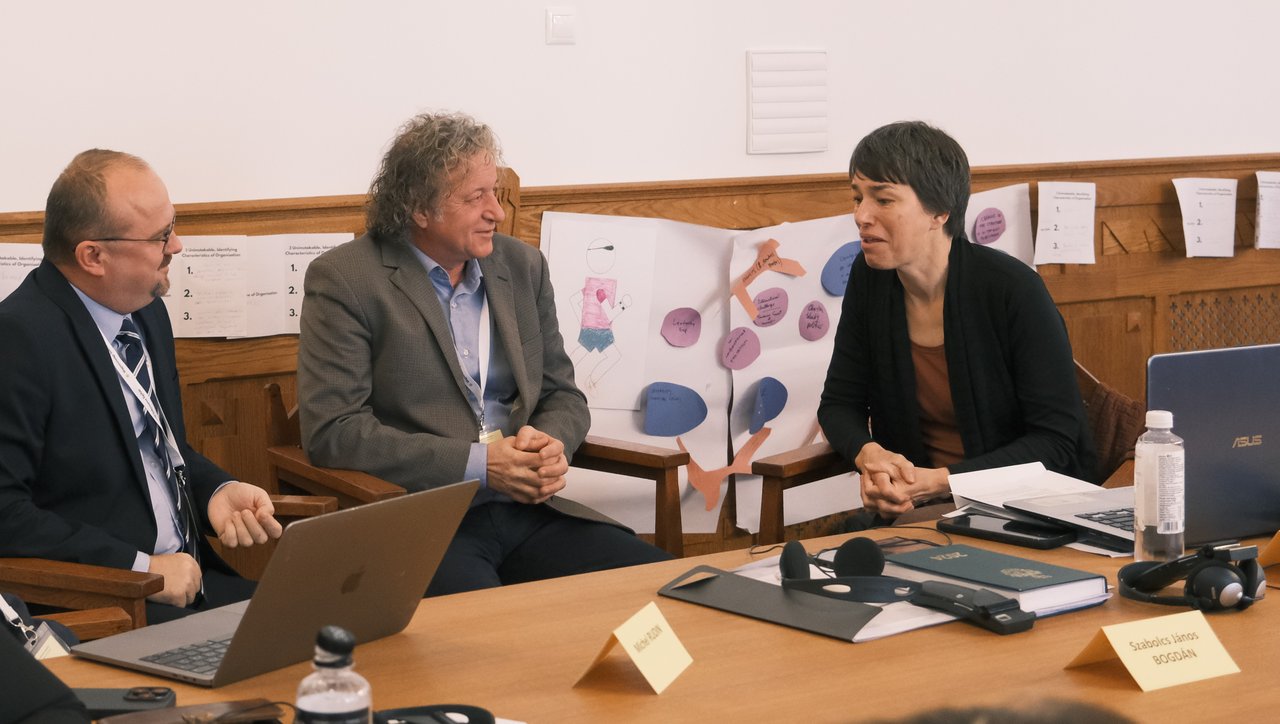
Photo: Ecumenical Office, RCH
Summary written by Emma Perry (Ecumenical Office of the Reformed Church in Hungary) and Martin Burkhard (Church Cooperation at HEKS)